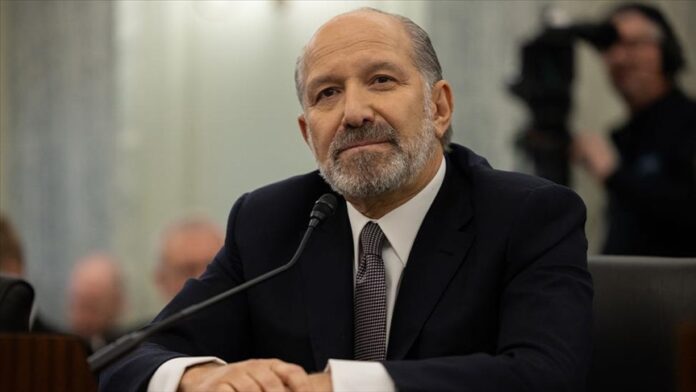The United States and China are continuing trade talks in London for a second day, aiming to reach an agreement on export controls.
U.S. Commerce Secretary Howard Lutnick said the discussions were going well and would continue throughout the day.
The meetings follow a first round of talks held in Geneva in May, where both countries agreed to step back from further trade restrictions. The current round focuses on resolving issues related to rare earth exports and U.S. export controls on high-tech goods.
U.S. economic adviser Kevin Hassett said on Monday the U.S. may ease some export restrictions, such as those on semiconductors, if China increases shipments of rare earths and magnets. These materials are critical to the U.S. economy, especially in the production of electric vehicles.
The talks are being led by U.S. Treasury Secretary Scott Bessent, Lutnick, and Trade Representative Jamieson Greer. The Chinese delegation is headed by Vice Premier He Lifeng.
The two sides met for almost seven hours on Monday and resumed talks Tuesday morning.
Lutnick’s participation signals the growing importance of rare earths in the talks. He was not present at the Geneva round, where both countries agreed to a 90-day rollback of some tariffs.
China controls most of the world’s supply of rare earth magnets, and its recent decision to suspend exports disrupted supply chains. In response, the U.S. halted shipments of chip design tools, aviation parts, and revoked several export licenses in May.
Hassett said the U.S. could lift some restrictions once a final deal is reached in London, though high-end AI chips from Nvidia will likely remain restricted due to national security concerns.
The second round of talks follows a call last week between President Donald Trump and Chinese President Xi Jinping. Trump’s trade policies have caused uncertainty in global markets, but the Geneva agreement helped ease investor concerns.
Recent Chinese customs data showed a 34.5% drop in exports to the U.S. in May, the biggest decline since the start of the COVID-19 pandemic. While the U.S. economy has not yet felt severe inflationary effects, business and consumer confidence have taken a hit.




